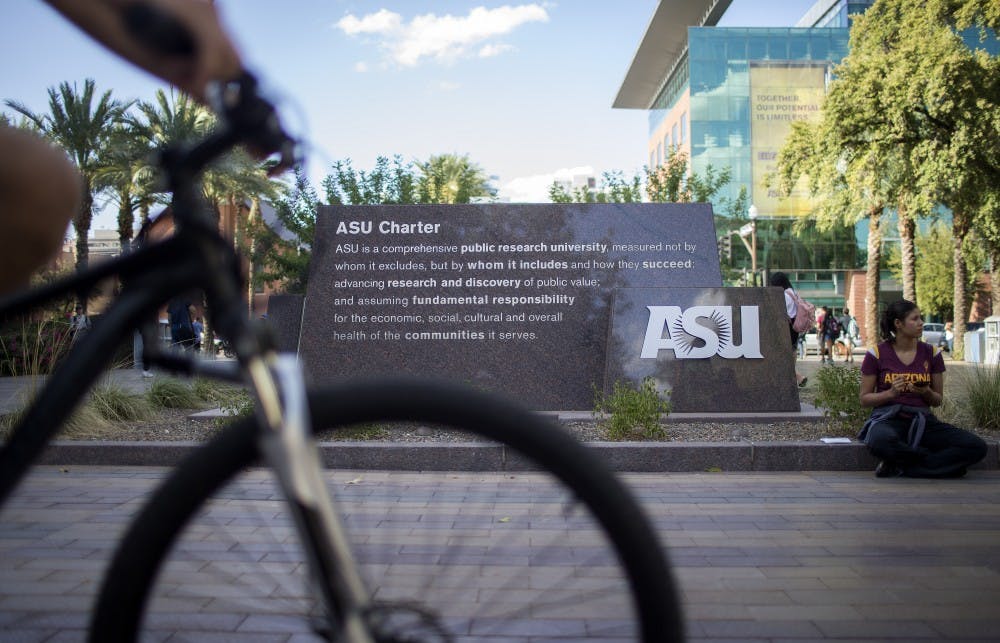ASU officials said this week the University won’t be changing its procedures for investigating campus sexual assault despite new U.S. Department of Education guidelines allowing colleges to use a higher burden of proof.
Secretary of Education Betsy DeVos announced last week that schools would be allowed to change some aspects of how they investigate sexual assault. The biggest change allows schools to raise the burden of evidence for determining the outcome of the case.
The department said schools should follow last week’s guidance in the interim while it collects public input on a more permanent set of policies.
Previous guidance from the Obama administration said schools should use a preponderance of the evidence standard — which equates to a roughly 50 percent likelihood of guilt — when deciding whether a student has committed a sexual violence violation.
DeVos rescinded the Obama guidance last week and gave schools the choice to raise the bar to a “clear and convincing” standard, which is closer to the burden of proof used in criminal trials and suggests an around 75 percent likelihood of guilt.
Many victim advocacy groups have said this standard unfairly favors the accused party because it's often difficult for schools to collect enough evidence to reach the higher standard.
Read more: Betsy DeVos rolls back Obama-ara sexual assault guidance
But ASU will continue to use the lower standard for adjudicating sexual assault cases, Senior Vice President for Educational Outreach and Student Services James Rund said.
“The current standard still applies, if something changes over the course of time, we’ll give thoughtful consideration to that,” Rund said. “What we’re trying to do is operate in the best interest of the student community.”
Rund said the University would likely consult with the Arizona Board of Regents and the state's two other public universities before making major changes to the investigative process.
“If there’s cause for reconsideration, then we would certainly think about modifying … That would likely be made among the three institutions,” he said.
UA spokesman Chris Sigurdson said his university has also decided to continue to use the Obama-era standards.
NAU has not decided yet which standard it will use, a spokesperson said.
“NAU will need time to carefully review and analyze the interim guidance regarding Title IX issued by the Department of Education,” NAU spokeswoman Kimberly Ott said in a statement. “The most important message we can share today is that we want to assure our students, faculty and staff that our top priority is and will continue to be providing a safe learning, living and working environment at Northern Arizona University.”
Other universities across the U.S., including Hofstra University, the University of Maryland and George Washington University, have also pledged to keep using the preponderance of the evidence standard.
Nancy Hogshead-Makar is a former Olympic swimmer and Title IX lawyer who now runs a nonprofit called Champion Women that advocates for gender equity in sports.
She said the preponderance of evidence standard is the only one that is fair to both parties.
“Champion Women and many other organizations are championing to have the standard be preponderance of the evidence,” she said. “The reason why is that’s the standard for every other type of student misconduct that there is.”
Advocacy groups across the U.S. have also said using the lower standard is the fairest way to decide wrongdoing. The Feminist Law Professors, a national feminist advocacy group, released a white paper in July supporting the use of preponderance of the evidence that was signed by over 100 professors.
In the past few months DeVos has emphasized the rights of students who have been falsely accused of sexual assault.
"Every survivor of sexual misconduct must be taken seriously. Every student accused of sexual misconduct must know that guilt is not predetermined," she said in a speech on Sept. 7. "Survivors, victims of a lack of due process and campus administrators have all told me that the current approach does a disservice to everyone involved."
But Hogshead-Makar said DeVos' approach is unfair because the majority of cases don’t involve false accusals.
“Where secretary DeVos gets it wrong is she equates having been raped with being falsely accused and those two things are not comparable,” Hogshead-Makar said. “I get it, it would be awful to be falsely accused and it does happen between 2 and 8 percent of the time for all complaints … but it is not comparable to being sexually assaulted.”
The University has a robust system for investigating any action that violates the student code of conduct, including more than 10 investigators in the Student Rights and Responsibility Office who examine such cases.
ASU charged 62 cases of sexual misconduct — which includes violations like rape, sexual harassment and domestic violence — in the 2015-16 school year, according to data released from the University.
Those sexual misconduct cases represented less than 2 percent of the 3,660 total cases opened by the SRR office into all offenses that year, according to information provided by Senior Associate Dean of Students Kendra Hunter in January.
Reach the reporter at reillykneedler@gmail.com or follow @reillykneedler on Twitter.
Like State Press on Facebook and follow @statepresss on Twitter.




